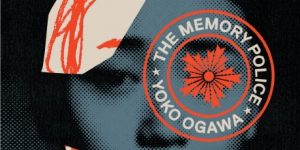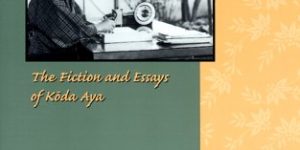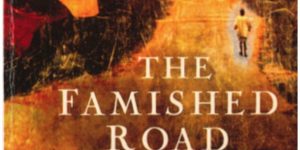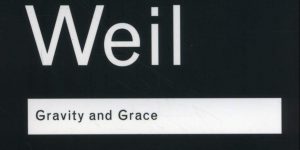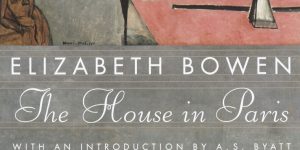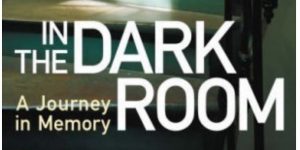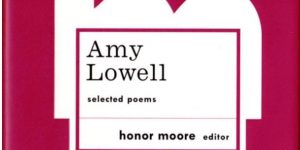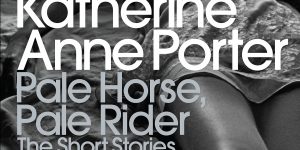15 ReadsAutumn 2020
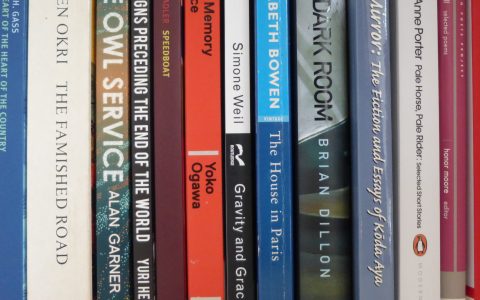
boundaries, frames and framing
space and spaces
interior / exterior
the power of things
the short form
memory
In the spotlight
Alan Garner
The Owl Service
Alan Garner, The Owl Service, London, Harper Collins, (1967), 2007
For younger readers
In a claustrophobic remote valley in North Wales, legend and the past collide with the present, in a story steeped in myth and the imagination. Three children discover intricately decorated plates in the attic of a house where they are spending their summer holidays. Locked into the pattern is a darkness that once activated threatens to repeat a tragic cycle unless they can undo the destructive magic which the triangle formed by their complex relationship has released.
Available as an audio book
Yoko Ogawa
The Memory Police
Yoko Ogawa, trans. Timothy Snyder, The Memory Police, London: Harvill Secker, 2019.
The destruction of each familiar thing (books, roses, hats, photographs, birds …) results at first in a dulling of the senses, followed by a complete loss of the memory of each object and all that is associated with it. Then comes the diminution of emotions in this unnamed island where with the disappearance of calendars the population lives in constant winter as well as in fear of the memory police. People are rounded up and disappear: those who do not comply in the destruction of their own belongings and those who are able to keep their memories alive despite this destruction. The lives of an old man, a novelist and R are drawn together in this investigation of totalitarianism and the vital power of everyday things.
Available as an audio book
Ann Sherif
Mirror: The Fiction and Essays of Kōda Aya
Ann Sherif, Mirror: The Fiction and Essays of Kōda Aya, Mānoa: University of Hawaii Press, 1999.
Autobiographical stories describe the small details of family life, both the time spent with her father the famous writer Kōda Rohan—under whose literary shadow Kōda Aya wrote—and life with her husband and children, her subsequent divorce and return to her father’s home. Through the seemingly small incidents of daily life, Kōda Aya holds up a mirror to pre and post-war Japanese society. Her elegant pared back style employs memory without sentiment, showing family dynamics and expectations through the objects of daily life, cultural practices and expectations.
The Owl Service
The Memory Police
Mirror: The Fiction and Essays of Kōda Aya
Featuring
Ben Okri, The Famished Road, Vintage Classics, London, 1992
To read this novel is to journey with Akiru, a spirit child (an abiku) as he crosses into the spirit world, a strange place of mutability; sometimes sinister, confusing and dangerous, sometimes an alluring place of great beauty and expansive time. Despite the supplications of his parents Akiru enters into these dream-like states leaving behind the poverty of his home in a shantytown on the cusp of independence from colonial rule. It is too simplistic to describe this novel as allegorical, surreal or magical, yet in traversing the boundaries of a world of logic into realms of other possibilities, Okri subtly exposes the direction in which humankind is travelling, travelling along a road which will consume all on its path until there is a profound desire for change.
Available as an audio book
Yuri Herrera, trans. Lisa Dillman, Signs Preceding the End of the World, Sheffield: And Other Stories, 2015
Streetwise, Anglo-speaking Makina makes the dangerous journey across the Mexican border to the USA to find her brother and bring him home. Whilst very much a story of our times: of fear of the border patrols, danger, exploitation and the unrealised dreams of so many migrants, the novella is also a contemporary quest drawing, as analogy, upon the well trodden path of the ancients who guided by the ferryman cross the River Styx into the Underworld.
Available as an audio book
Simone Weil, trans. Emma Crawford and Mario von Ruhr, Gravity and Grace, with an introduction and afterword by Gustave Thibon, London, New York: Routledge Classics, (1952), 2002
These short pieces composed in aphoristic fragments in exercise books and as notes were intended to be developed into fuller pieces at a later date, Weil’s friend and the guardian of her papers Gustave Thibon wrote. Unable to realise this ambition in her short and volatile life, what is expressed is a quicksilver purity of thought that reaches into one’s very soul, written with the honesty and courage of the moment when the mind is laid bare.
Elizabeth Bowen, A House in Paris, with an introduction by A. S. Byatt, London: Vintage, (1935), 1998.
Two children, Henrietta and Leopold, meet for the first time in a house in Paris. Both are alone and in transit to new family circumstances. Time shifts to the past, revealing the story of Leopold’s origins and his connection to the women living in the Parisian house. Viewed from multiple perspectives, episodes coalesce in final moments of truth. Discovery of identity, social conventions measured against realities of emotion, examination of the complexities of truth and fiction, love and loyalty are told in a narrative finely tuned to every shift in atmosphere, and nuance of emotion.
Available as an audio book
Georges Perec, trans. David Bellos, Life, A User’s Manual, London: Vintage Classics, (1978), 2008.
Filled with allusions, literary dead-ends, playfulness, sham bibliographies and lists, Life shows the pathos and the exuberance of the human condition. It is a puzzle but incomplete, playful and shaped by schematic constructions that are established only to ultimately fail. As Perec guides the reader through the spaces of a Paris apartment block we observe a range of extraordinary characters including a multi-millionaire, a disabled cyclist, an amateur chemist, a second-rate painter, a soprano singer and a variety of con artists who are in turns mysterious, eccentric, obsessive, delusional and disillusioned. Each short chapter offers a phenomenological discovery of things and glimpses into the lives and histories of their owners as well as perhaps Perec himself.
Brian Dillon, In the Dark Room, A Journey in Memory, London: Penguin Books, 2005.
An intense personal enquiry into the nature of memory, family and unacknowledged loss. Drawing on writers from de Quincy to Proust, Nabakov to Berger, Dillon explores how objects, place and strong visual memories of his childhood home carry powerful associations with the illness and the death of his mother followed by the sudden death of his father, leaving the author orphaned in his late teens. Dillon examines both what we fail or avoid to see as much as what we seek in the objects and places which become supports or informants to memory. Such a profound knowing of things and the author’s confrontation with the past is as delicate a tracing through literary and philosophical writings as it is a means to contextualise his own experiences in a brave and vivid autobiography.
Virginia Woolf, with an introduction by Hermione Lee, A Room of One’s Own, London: Vintage Books, (1929) 2001
This seminal essay is vitally concerned with women, writing and a woman’s place in the world. It is a work where essay and fiction meet on the space of the page, where the silencing of women throughout history is exposed and the reasons why questioned. Woolf’s character Mary Seton, who is to write a paper for a lecture Women and Fiction, scans the library shelves in Oxford and the British Museum finding until recent times (this essay was first published in 1929) that women writers are few and the lives of women mostly undocumented. There is no female literary history to draw upon and little space, either in the literary sense or the physical sense from and in which to write. So this is what Woolf has set out to do: to begin to make a space in which she as a woman and as a writer can express her thoughts and find them accepted.
Available as an audio book
Amy Lowell, ed. Honor Moore, Amy Lowell: Selected Poems, New York: The Library of America, 2004.
Contained in this slim volume are poems selected from Lowell’s nine publications spanning her writing life from 1912 – 1925. Influenced by Keats, Chinese poetry and the Imagist movement, her writing, both formal verse and free form, is sensual, rich with colour, sights, and the dreams and expressions of her imagination. Perhaps Lowell’s most arresting are the poems of female desire – works of honesty, love and great beauty.
Poetry available as audio
Katherine Anne Porter, Pale Horse, Pale Rider: The Selected Stories of Katherine Anne Porter, Penguin Modern Classics, 2011.
Loosely based on her own life experiences in the Deep South, the failed Mexican Revolution and the 1918 influenza epidemic, these stories and novellas are exemplars of the short form. Visceral, sometimes dark, sometimes dryly humorous, this is fiction that probes under the skin of things, portraying characters at odds with the worlds in which they exist.
Raymond Williams, Border Country, Parthian: Library of Wales (1960), 2006
Now a lecturer in London, Matthew Price returns to the Welsh border village of his childhood to be with his ailing father. Against a backdrop of workers’ strikes in 1926, a vivid sense of place and belonging is recalled and with it a portrait of the close-knit community which Matthew was raised within. Although his life now relocated and the valley and its people distant and in transition, there comes a realisation that despite this distance, it has been deeply formative and its values firmly ingrained: ‘By measuring the distance, we come home.’
William Gass, In the Heart of the Heart of the Country and Other Stories, with an introduction by Joanna Scott, New York, The New York Review of Books, 2015.
It would be a disservice to the distinct voices, structure and atmosphere of each story in this collection if their individuality were reduced to commonalities and themes across the five pieces. This said, however, as the nature of this exercise is to attempt to offer a flavour of each selected work, perhaps the following is a beginning: the extremes of weather, claustrophobia, a child’s viewpoint, intensity, fear, beauty, a housewife’s viewpoint, voyerism, the marvellous, a realtor’s imagination, internal dialogue, aging, observing the immediate external environment from the centre of oneself, discord, perspectives, realisations, emotion, truths.
Renata Adler, Speedboat, with an afterword Guy Trebay, New York: The New York Review of Books, 2013.
Journalist Jen Fain gets to the heart of things in a single sentence, or at most a couple of paragraphs. Both in form and subject Adler’s dislocated aphoristic prose which builds and digresses before returning to an earlier subject expresses life experienced in late 1960s, early 1970s America. Adler’s wry humour and often biting derision dissects moments in New York Brownstones, in academia, a newspaper office, at parties, on holiday, on the psycho-analysts couch, in advertising, in bed, in planes, and in the schoolroom. Nothing escapes her astute observations of the addictions, beliefs and eccentricities of her acquaintances, friends and loves.


